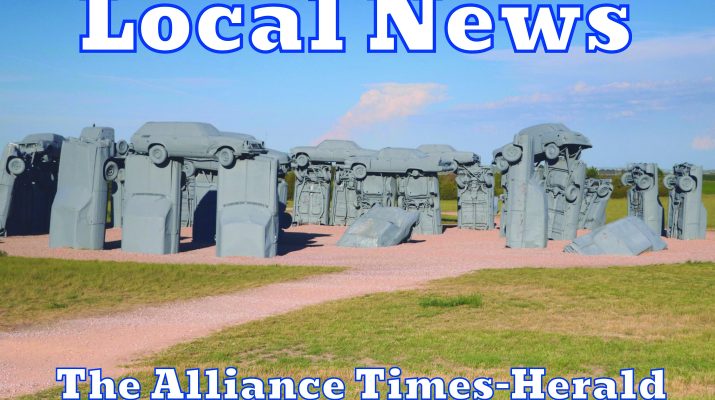Following the loss of somebody to suicide, support and resources are available to help people with a new virtual suicide loss support group that launched in the Panhandle.
Liz MacDonald, Community Prevention Coordinator with Panhandle Public Health District, is spearheading the virtual support group. She explained that this virtual group is just the first step as there are plans to launch in-person groups in Alliance and Scottsbluff, and other sections of the Panhandle as resources become available.
MacDonald said that there has been a sharp increase in the suicide rates in rural areas over the past few decades, indicating the importance of support groups in further prevention.
“This is something that Panhandle residents have been asking for, for a long time,” said MacDonald. “Suicide loss support groups are really common after someone has died by suicide. We know that during that time, a person’s risk, someone who is directly linked with the person who has died by suicide, their risk of dying by suicide increases pretty drastically.
“To be very frank, our friends, our neighbors, our family, people are dying, and in the past two decades, suicide rates have been consistently higher in rural America than in urban areas,” MacDonald said. “They’ve increased in rural areas, in that time span, by 46 percent, compared to 27 percent in urban areas. So, we know that, per capita, people in rural areas are disproportionately affected by suicide.”
Data indicate that suicidal thoughts and attempts are also increase among the youth in Nebraska, MacDonald explained.
“Among 10th graders surveyed, 25 percent said that they considered attempting suicide, compared to the statewide average of 20 percent, and one in 10 had had a suicide attempt, which is twice that of the statewide average. So, we know that, in addition to rural areas being disproportionately affected, and obviously the Panhandle being rural, even as far as rates in the state, the Panhandle rates higher in what we’re seeing as far as need, and even depression. A lot of that is simply due to geographical distance to go see a mental health provider. Even if you are close enough to go see one, there is such a shortage of mental health providers.”
There is still a stigma when it comes to mental health, though, MacDonald believes, headway is being made against that stigma.
MacDonald said that dedicated volunteers will facilitate the in-person support groups, and that she will continue to facilitate the virtual group. She hopes to make the groups as accessible as possible. The virtual group takes place on the first and third Tuesday of the month from 5:30-6:30 p.m. She encourages people to register for the virtual group at https://tinyurl.com/53j6hf7d or by calling 308-633-2866. People may also email her at lmacdonald@pphd.ne.gov. Once the in-person groups launch, the groups will not require pre-registration.
Planning for the future, MacDonald would also like to see a veteran-specific group form.
“We know our veterans are so disproportionately affected by suicide,” said MacDonald. “We’d love to get the groups more tailored so they can be even more helpful for people. One thing about Panhandle Public Health District, when we see a need, and I’ve only been here a year, but I can tell you what I’ve witnessed so far, when there is a need, these people figure out how to help the community.”
One resource MacDonald said is always available to anybody struggling is the phone number 988, which is the suicide and crisis hotline. She also encourages people to take advantage of training offered by PPHD in QPR: Question, Persuade, Refer.
“It is emergency mental health gatekeeper training, an intervention that teaches, really anyone, but especially lay people, to respond to someone exhibiting suicidal behavior,” MacDonald said. “It just helps people get to a point where they can even ask someone, ‘Are you thinking of killing yourself?’ Those are really difficult words to say, especially to someone you care about. I feel like it is something we should train every adult in. This is kind of saccharine and cliché, but reach out and check on how people are doing. The holidays are a hard time for people. Connection is one of the biggest protective factors against suicide, and that can be connection to people, to culture, to community. I think we just need to all look out for each other.”

